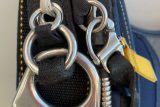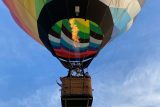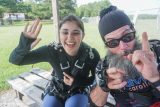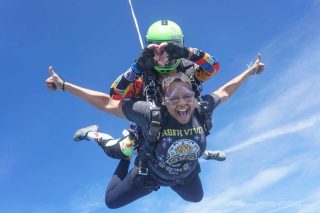How Do Skydivers Know where to Land?
Sport Skydiving
5 years ago
If you’ve ever watched a YouTube video of a skydiver landing in the exact center of a football field, you may marvel at how they were able to do that with such accuracy. To simplify, it comes from training and lots of experience. In the video below, watch Skydive Carolina local jumper (and multi-time World Champion and Hall of Famer) Cheryl Stearns land very accurately!
Skydive Training
This should come as no surprise – you can’t be good at anything without training. The more you do something (correctly), the better at it you become whether you’re driving a car or learning to fly your parachute. Landing with accuracy is obviously very important, so you will be taught the fundamentals of how to land your parachute accurately at the very start of your training when you enroll in a learn to skydive program like our Accelerated Freefall Progression program.
One of the basic fundamentals that all skydivers learn in order to land with accuracy is the landing pattern. The landing pattern is not unlike the pattern you see at an airport when airplanes are approaching. If you follow the track of airplanes online, you’d see a distinct pattern that includes a downwind leg, base leg and final approach to the runway. It’s no different in skydiving.
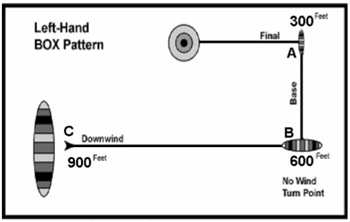
Parachute Steering
Aside from learning the correct pattern of flying a parachute, of course you need to know the fundamentals of actually steering the parachute in the direction you want to go.
Simply put, the parachute has steering lines (aka brake lines) that attach from the back of the parachute all the way down to where your hands can reach up into yellow steering toggles.
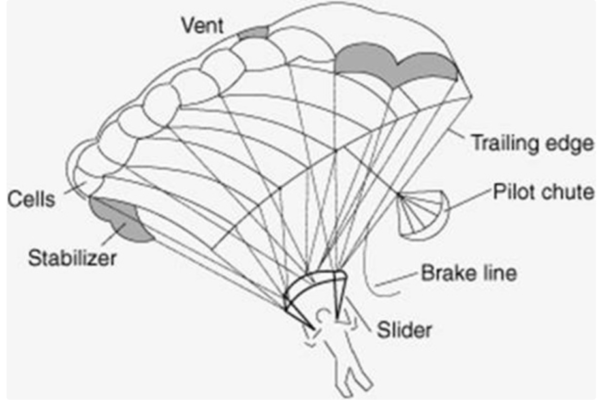
When you pull down the right steering toggle (leaving the left up), the right, back side of the parachute is cupped, causing it to turn right. The same is true when the left toggle is pulled (leaving the right up), the left back side of the parachute is cupped, causing the parachute to turn left. This makes the parachute maneuverable, so you can direct the parachute where you want to land.
Understanding the Flight Characteristics of Your Parachute
To land with accuracy means you need to know the flight characteristics of your parachute. Every parachute is different in terms of size and performance, so how you fly it will dictate where you land. Think of a parachute as if it were a brand of car – there are many different car brands with different kinds of models that perform differently to meet the needs of a driver. How you maneuver these models around a race track will differ based on its characteristics and what purpose it’s been built for.
It’s no different with a parachute. Like a car, to understand the capabilities and limits of your parachute you have to “drive” it a lot. The more landings you make with your parachute the better you’ll be at flying it accurately.
Pre-Planning – Understanding the Conditions
There are many variables that dictate where you land your parachute that go beyond the details mentioned above. A key variable is of course, weather and most specifically, wind. All good skydivers check the wind conditions at various altitudes (it can be much windier at exit altitude than it is at deployment altitude or vice versa) before boarding the plane. Understanding the information with regard to wind will play a big factor on knowing where to land.
Using Your Eyes
This seems fairly obvious – however, we’re talking about using your eyes to look before you leave the airplane – in skydiving, we call this spotting. Spotting is simply checking that you are above the general vicinity of the designated landing area. When skydivers have a clear understanding of the wind direction and speed, they generally know where they want to exit the aircraft in advance. This will add to your success in flying the parachute to where you want to land.
This is a basic outline on how skydivers know where to land. There are several more steps taught in the Advanced Freefall Program, however with some training and pre-planning, you too can know how to land a parachute. If you’d like to learn more, give us a call or sign up for the solo program and learn to skydive!
You can discover more about Parachute Landings HERE.
